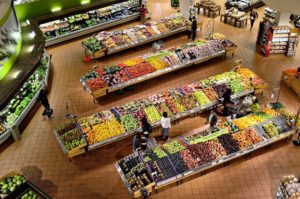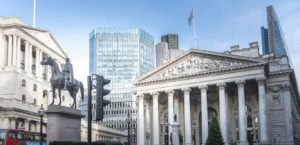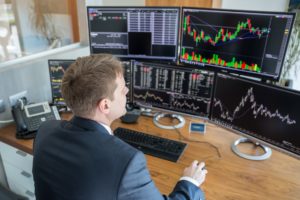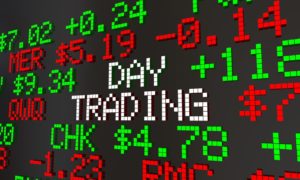
In the second of our blogs about Futures, we take a look at how they are traded on a global basis.
Much like the energy, agricultural and metals commodities that we have looked at in our Commodities in Focus series, Futures Contracts are traded on Futures Exchanges.
A Futures Exchange operates as a market place where professional traders and brokers operate.

Futures Exchanges are the global market places for Futures trading
There are Futures Exchanges operating all around the world and in most places where any sort of professional financial markets operate. All modern Futures Exchanges accommodate electronic trading which is how many traders now choose to trade.

Futures Exchanges operate in all major financial markets
According to The Robust Trader – the largest is the CME Group in the US which consists of a number of regional local exchanges in the US – including the Chicago Mercantile Exchange, the New York Mercantile Exchange and Commodity Exchange Inc.
In Asia the largest is the National Stock Exchange of India, and the largest in Europe is Eurex.
In the UK we have already come across the London Metals Exchange in our blog about metals commodities.

The London Metals Exchange (LME) is one of the major Futures Exchanges in the UK
Although we looked at the process for sellers and buyers of commodities in our intro blog, the reality is that the majority of Futures trading is not carried out by people who want to actually purchase commodities but instead involves speculation.

Most Futures Traders Speculate on the market in order to generate profit
Traders trade in Futures in order to make a profit from price fluctuations in the Futures Market i.e. the difference between the price that is agreed when entering into the Futures Contract and what the market price is when the contract is finalised. They trade for themselves or on behalf of other investors.
Traders can take what is known as a ‘long position’ which means entering into an agreement to purchase the relevant item or commodity at some time in the future if they believe the price will go up.
OR a ‘short position’ is intended to take advantage of a higher price now – if they believe the price is likely to drop in the future.
The sale and purchase of Futures Contracts is happening continuously on a global basis and futures contracts are often bought and sold in day trading (i.e. on the same day). This is very different from the original buying and selling of products that we talked about in our argriculturals blog where arrangements were made to buy certain crops after harvests and a long time into the future.

Many Futures Contracts change hands in Day Trading
Despite this the decision making process for what to sell and what to buy is still the same and involves traders understanding the complicated range of factors (geopolitical environmental, business and climatic) which are likely to affect supply and demand on a day to day basis as well as into the future.
Contracts are entered into with the objective to hold on to them until the final agreed expiration date. Traders who speculate buy and sell Futures Contracts before they expire as they do not intend to ever take actual delivery of any commodity.
At Matchpoint Recruitment we are specialists in finding the right roles for experienced commodities professionals and helping our clients to build their specialist teams.
And if you haven’t yet done so – why not have a read of our Introduction to Futures Blog?